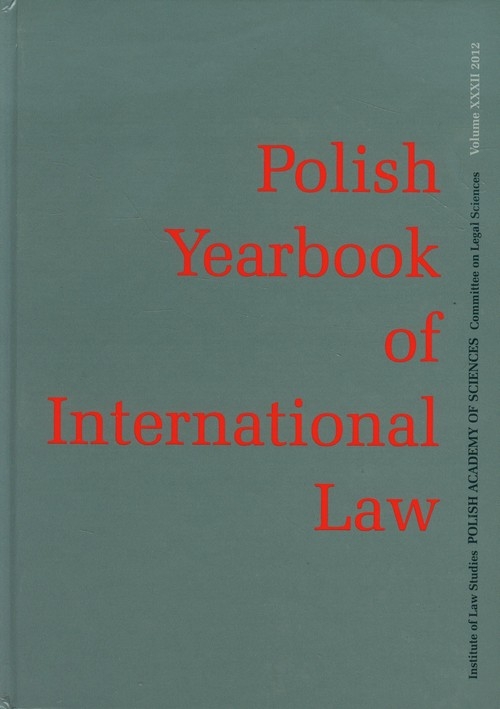THE MISSING POST-HOLOCAUST TRACES
IN RECENT CASE LAW OF THE EUROPEAN
COURTS
THE MISSING POST-HOLOCAUST TRACES
IN RECENT CASE LAW OF THE EUROPEAN
COURTS
Author(s): Aleksandra Gliszczyńska-GrabiasSubject(s): Law, Constitution, Jurisprudence, Jewish studies, Human Rights and Humanitarian Law, History of Antisemitism, Court case
Published by: Instytut Nauk Prawnych PAN
Keywords: Holocaust; boycotts; ritual slaughter bans; anti-discrimination law; religious freedom
Summary/Abstract: The Holocaust constitutes one of the most powerful symbols in the history of humankind. Its memory, and in particular its irrefutable relationship with anti-Semitism, should trigger strict scrutiny every time anti-Semitic attitudes re-emerge, even if disguised as seemingly harmless words or actions. This applies also to legal measures,neutral on their face but which, in their consequences, may have an adverse effect on Jews, and thus raise the suspicion of anti-Semitic implications. Such implications are visible in the recent phenomena that serve as the two case studies for the present article:boycotts of Israel and bans on ritual slaughter (Shechita). While in the case of anti-Israeli boycotts, the core arguments relate to international anti-discrimination law and policies, in relations to the Shechita bans claims about violation of the religiousfreedom of observant Jews prevail. At the same time, in both cases strong references to the Holocaust and the memory of its victims are being invoked, allowing one to raise objections as to the status of the relevant legal developments. Here again history and memory enter into the public and legal discussions, legislative processes, and courtrooms.
Journal: Polish Yearbook of International Law
- Issue Year: 2021
- Issue No: 41
- Page Range: 213-234
- Page Count: 22
- Language: English
- Content File-PDF

